People in the Central African Republic’s (CAR) capital of Bangui do not get too attached to things. A church might be demolished to make space for a new school. The city is constantly changing. Another constant factor is the resilience of the people - those trying to restore the city to a place of peaceful coexistence.
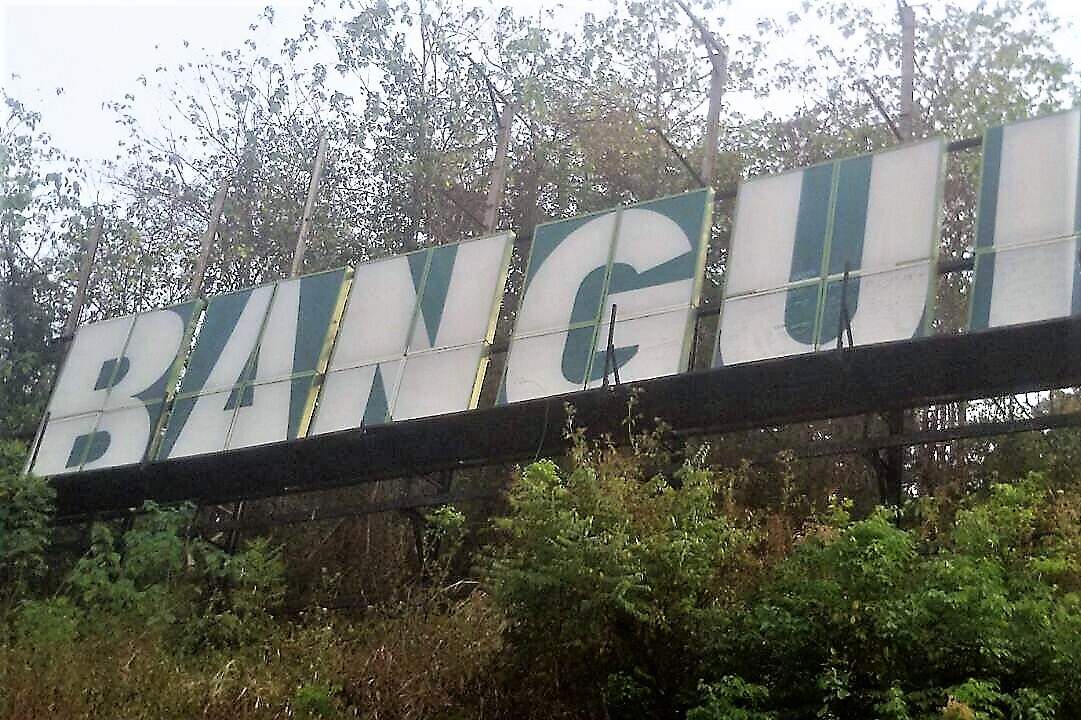
"Bangui" sign in the hills of Bangui. Photo: Lucas Destrijcker 2017
Bangui lays at the shore of the Obangui River. It is located at the crossroads between two regions and two peoples: in the north, the Sahel with its majority Muslim, and in the south with its now predominantly Christian. The once historic heart of Africa, Bangui has in recent times seen more houses and shops destroyed and rebuilt than ever before.
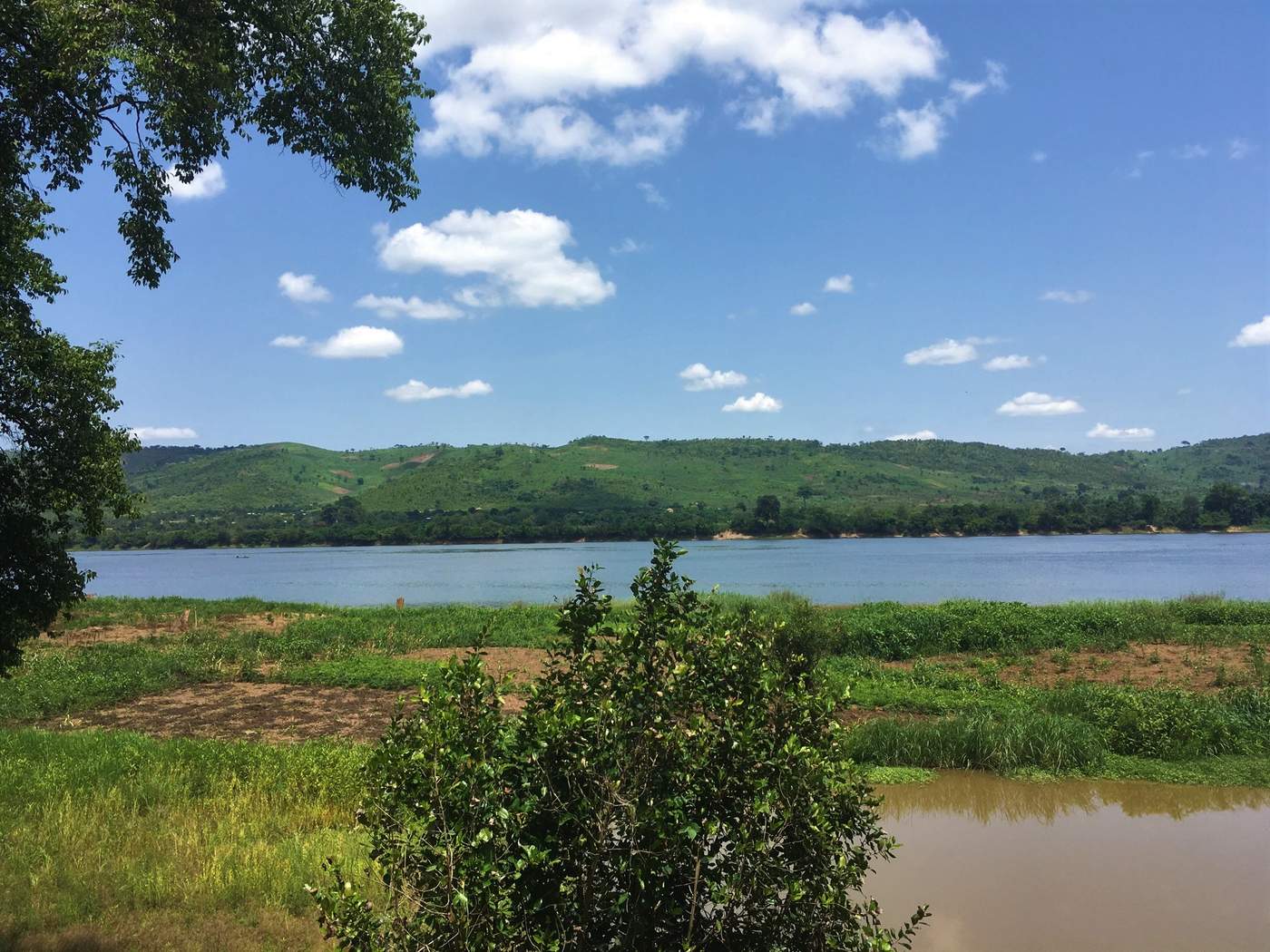
The Oubangui river with the hills of the Democratic Republic of the Congo at the other side of the river. Photo: Tijs Magagi Hoornaert/UN Migration Agency (IOM) 2017
In December 2013, clashes erupted between armed groups. Almost four years later, the situation throughout CAR remains volatile.
The remains of a church in District Five in Bangui. Photo: Tijs Magagi Hoornaert/UN Migration Agency (IOM) 2017
The remains of a church in District Five in Bangui. Photo: Tijs Magagi Hoornaert/UN Migration Agency (IOM) 2017
A teacher is testing the new chalk board in a rebuilt school in Bangui. Photo: Tijs Magagi Hoornaert/UN Migration Agency (IOM) 2017
The Soul of Bangui
Bruno Yabongo is a 27-year-old husband and father of three. He brings a pink folder with his name handwritten on it and a phone number with him most places he goes. The folder holds 10 copies of his resume. Bruno is eager to work.
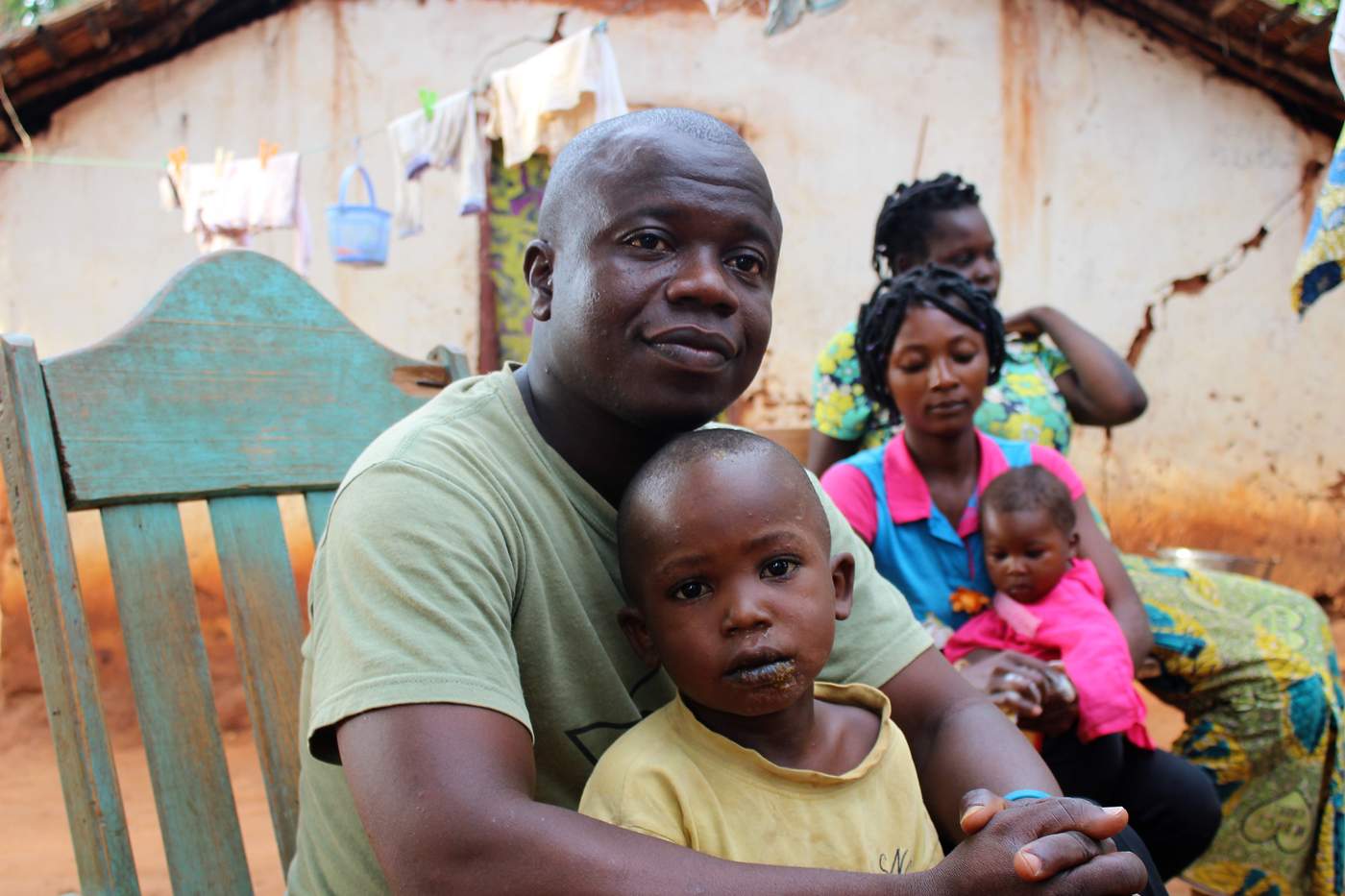
Bruno Yabongo and his family in front of their provisional house in Ngoungbé, just outside of Bangui. Photo: Tijs Magagi Hoornaert/UN Migration Agency (IOM) 2017
When asked what kind for work he would like to do, Bruno answers:
"Anything!
"I have a family to support. I studied economics at the University of Bangui. I completed my studies this year and I am now really motivated to find a job."
When the conflict escalated in 2013, he was living in a house close to the centre of the capital.
"They killed my younger brother before my own eyes, when he refused to drink his own urine."
Bruno fled with his family to Congo (Brazzaville) and found shelter and safety there for one year and three months.
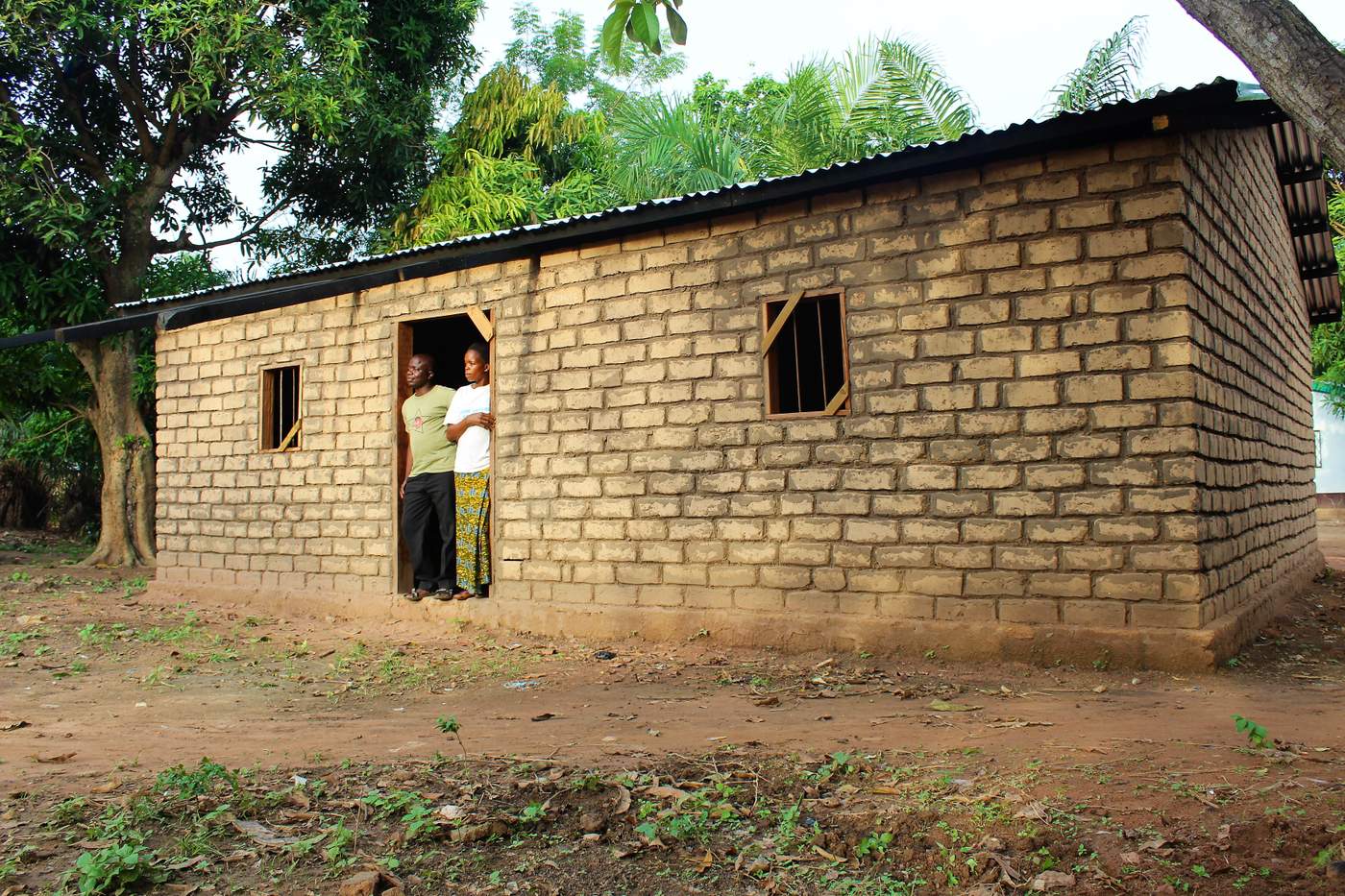
Bruno Yabongo and his wife are standing in the entrance of their unfinished "new" house in Ngoungbé, just outside of Bangui. Photo: Tijs Magagi Hoornaert/UN Migration Agency (IOM) 2017
When he is not job-hunting, Bruno spends a lot of his time volunteering with his own association "Ta Mo Londo". Ta Mo Londo is Sango, the country’s official language, for ‘get up my brother’. With “Ta Mo Londo”, Bruno travels to rural villages to talk with young people to convince them that joining an armed group is not the solution to their problems. He instead encourages them to participate in their community by helping others.
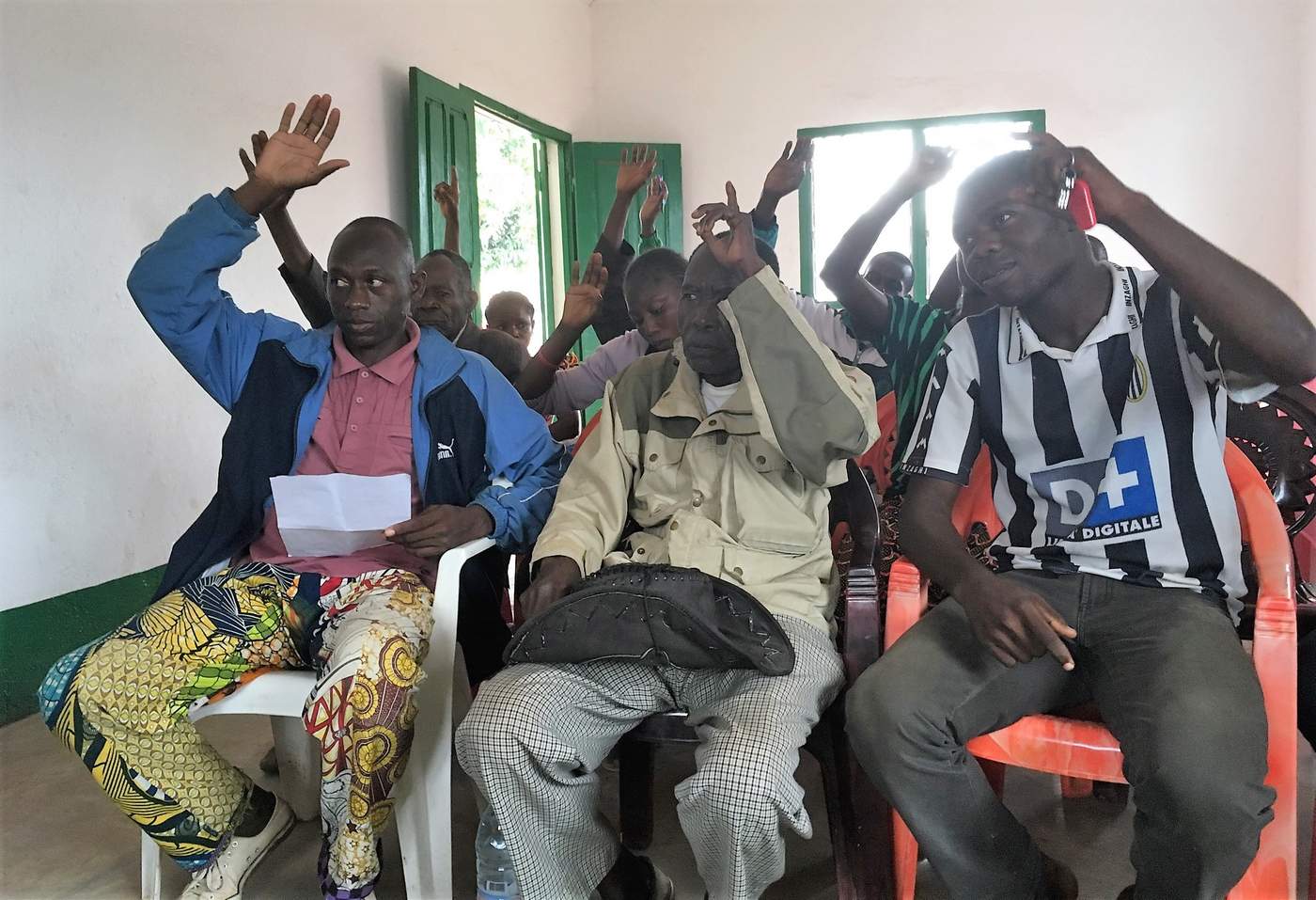
People raise their hands at a social cohesion meeting in District Three in Bangui. Photo: Tijs Magagi Hoornaert/UN Migration Agency (IOM) 2017
"Sometimes it’s hard for young boys to hear. I arrive, only 27 years old, and tell them they should get up and start participating in their community by helping others.
"If I manage to keep one young person out of an armed group, I will be happy."
A lot of young people in CAR become involved with drugs, which often leads to violence.
A woman and her children in Ngoungbé, just outside of Bangui. Photo: Tijs Magagi Hoornaert/UN Migration Agency (IOM) 2017
The entrance of the town hall of District Three in Bangui. Photo: Tijs Magagi Hoornaert/UN Migration Agency (IOM) 2017
Bangui is divided into eight districts. District Three in the west has been the worst affected by the conflict. District Three is made up of 29 zones, where the mosque and PK5 are the most well-known. The district accommodates internally displaced persons from different ethnicity and religious groups.
Houssna Ibrahimais 20 years old and lives in behind the town hall, a more affluent part of District Three. To enter the town hall you have to pass by a tank. Houssna tells me that she got used to it. She passes in front of the town hall almost every day. But she wouldn’t be able to tell me how long the tank has been there for.
In March 2016, she participated in a Cash for Work programme with IOM.
“I helped clean the streets in my district and earned 40000 CFA [Central African Franc] in one month. I used 10000 CFA to go to the doctor and the other 30000 CFA to invest in my little shop of children clothes.”
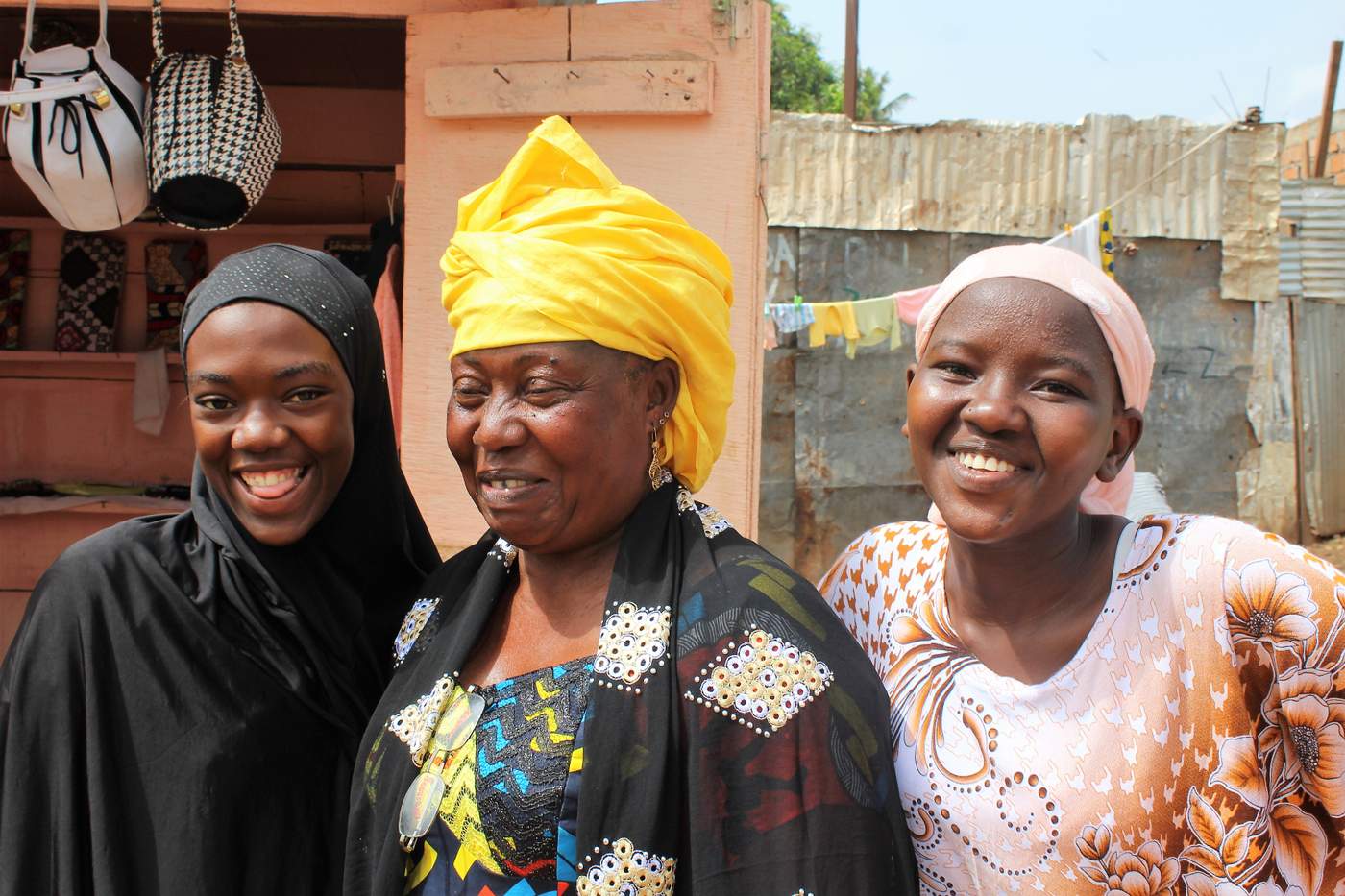
Houssna Ibrahima (on the left) with her mother and younger sister in front of her shop in District Three in Bangui. Photo: Tijs Magagi Hoornaert/UN Migration Agency (IOM) 2017
Houssna has four sisters and three brothers. They all live together with their parents and their two aunts from her mothers’ side of the family. They are one of the few families that stayed in their home when conflict escalated.
"My father is a strong man and people respect him here in the district. He said that we would stay.
"I was afraid but in the end he was right. We still have our home and our family."
Houssna’s shop sits in front of her house. It comprises of a small wooden cabin that at first sight might remind you of a phone booth without windows.
Once she opens her shop, you can see all the colourful clothes, bags and jewellery it contains for young girls. Houssna’s younger sister runs the shop open when she is busy. Houssna is proud of her shop and her mom is proud of her - a little sparkle of joy under the Bangui sun.
Children in the streets of Bangui. Photo: Amanda Nero/UN Migration Agency (IOM) 2017
A Unique Community
To live in Bangui means you either accept your new reality or you try to improve your situation. People work for their own future, regardless what stage they are at in life.
Alphonsine is 63 years old and is a representative of the Organisation des Femmes Centreafricaines (OFCA) in District Three. OFCA is a nationwide organization that partners up with other civil society groups to organize social cohesion activities.
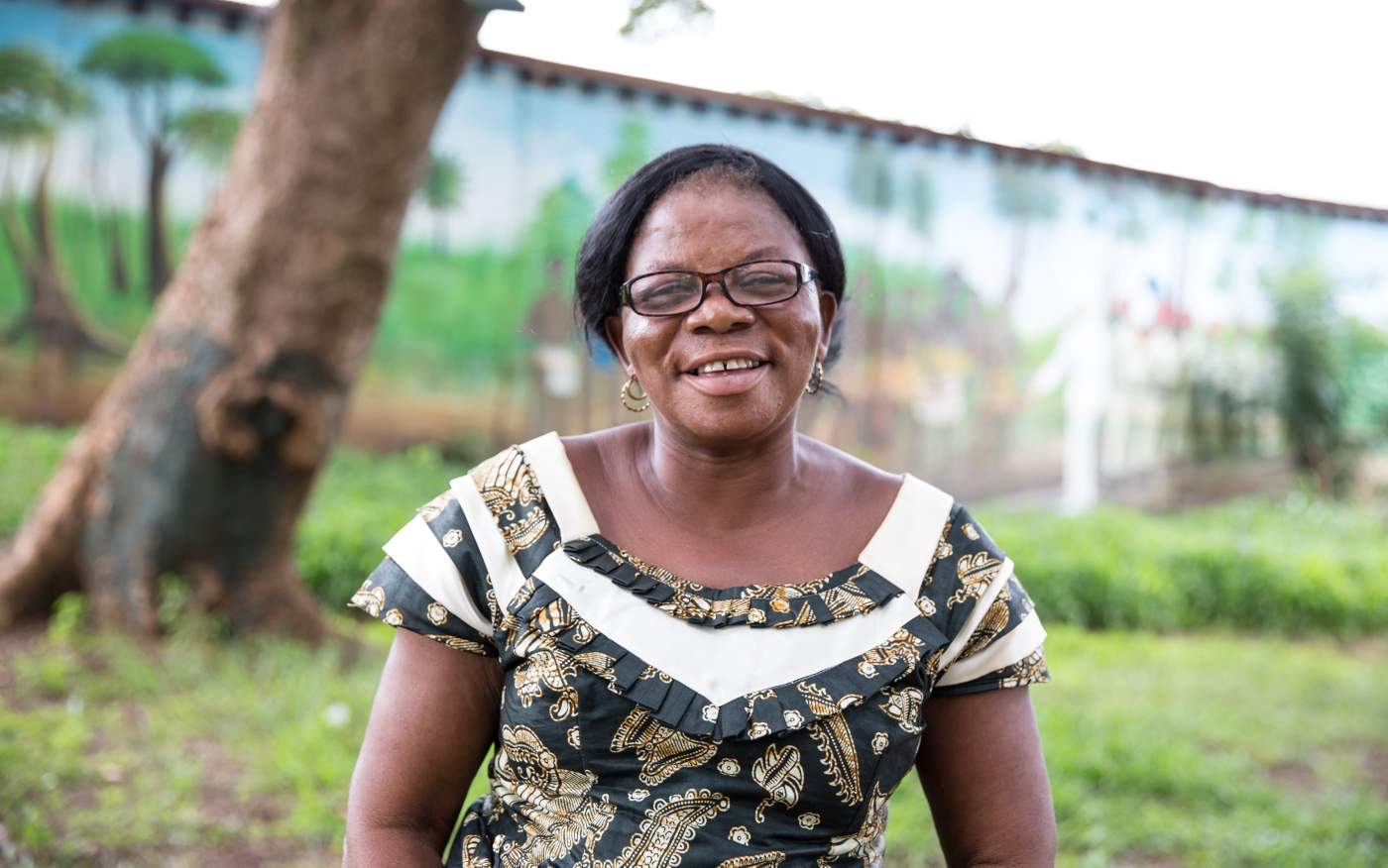
Alphonsine from Organisation des Femmes Centreafricaines (OFCA) in District Three in Bangui. Photo: Amanda Nero/UN Migration Agency (IOM) 2017
In District Three, Alfonsine gathers 30 women together every week to discuss ideas on how they can improve their lives and that of their community. The ideas they discuss vary from a collective purchase of a sewing machine or starting a chicken farm.
“You might say that we have a strong community. We have had our share of tough luck but we never gave up. If we can improve a little bit our lives, it will benefit the whole community.” said Alphonsine speaking on behalf of the group.”
Members from Organisation des Femmes Centreafricaines (OFCA) in District Three in Bangui are leaving their meeting. Photo: Tijs Magagi Hoornaert/UN Migration Agency (IOM) 2017
A member of Organisation des Femmes Centreafricaines (OFCA) in District Three in Bangui speaks up. Photo: Tijs Magagi Hoornaert/UN Migration Agency (IOM) 2017
An Infinite Hope
The streets of Bangui all lead to Point Kilomètre Zéro (PK0), the central point in the heart of the town. If you get lost in the streets you can always go back to that point and start over again.
When you walk around in the streets you will find a mix of little shops, compounds and old buildings - bullet marks visible in the walls.
Remains of a restaurant in Bangui. Photo: Tijs Magagi Hoornaert/UN Migration Agency (IOM) 2017
Two men wait in the town hall of District Three in Bangui. Photo: Tijs Magagi Hoornaert/UN Migration Agency (IOM) 2017
"The situation in the District Three is of such a sensitive nature that every activity needs to be carefully planned.
"If not, you risk the people turning against you," said Dave Amadou-Maalamouda, chairman of the Collectif Pour la Paix en Centrafrique (CPCA).
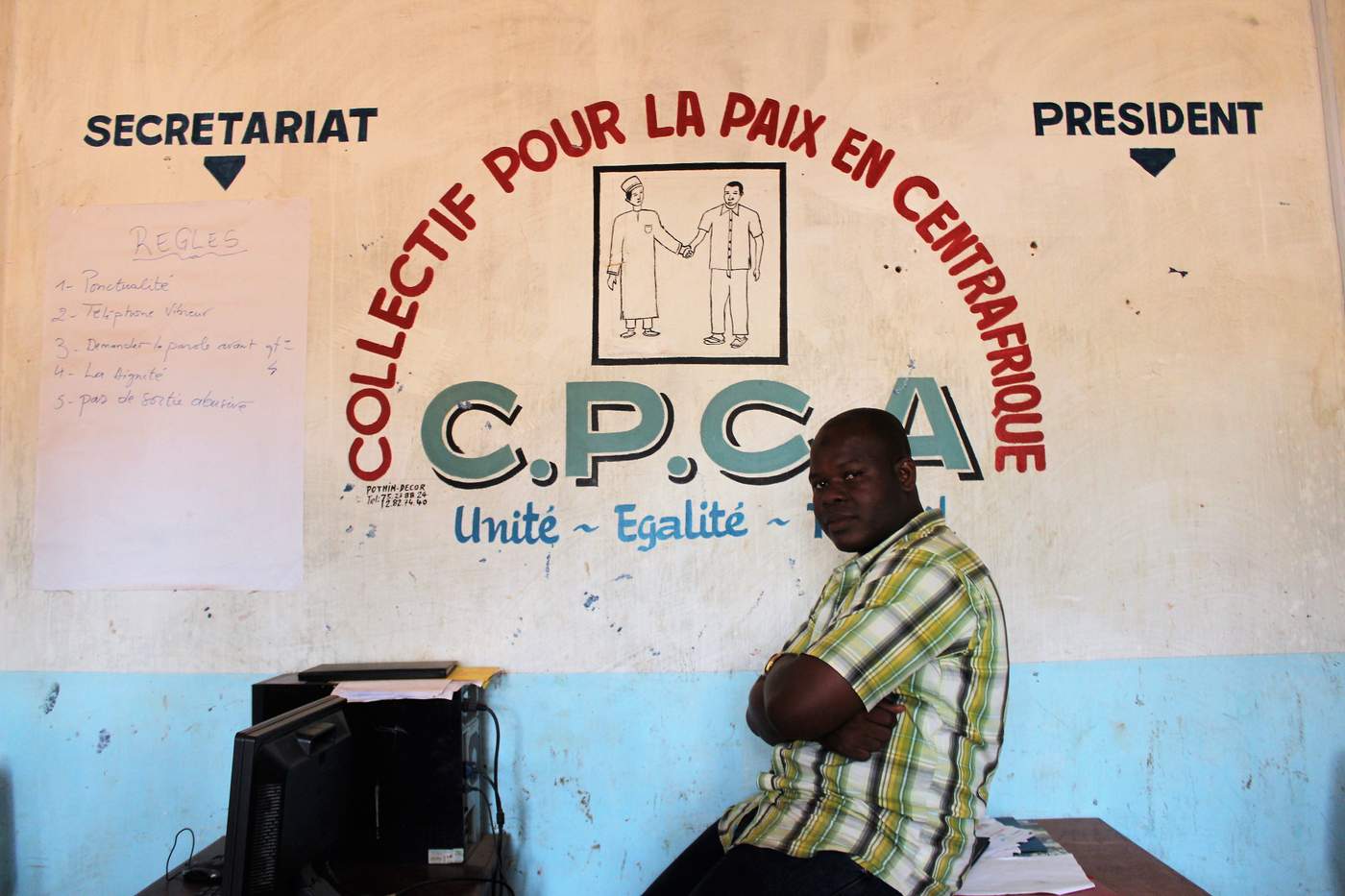
Dave Amadou-Maalamouda, chairman of the Collectif Pour la Paix en Centrafrique (CPCA) in his office in District Three in Bangui. Photo: Tijs Magagi Hoornaert/UN Migration Agency (IOM) 2017
Dave is 33 years old and works closely with IOM to organize reconciliation activities in five zones in the 3rd District. CPCA helps strengthen communities by facilitating safe and free movement. The aim is to help small businesses gain customers and to encourage people to commit to sustainable peace building.
“We are trying to organize reconciliation activities, such as a soccer match. It will be one of the first since the last uprising of the crisis. Besides those activities,we are also identifying displaced people, assisting vulnerable persons (like abused women) and trying to identify victims.”
“Unfortunately, there are still armed groups out there. You don’t come here at night but there are shootings almost every night. The disarming of those armed groups must be priority number one. It must be dealt with really soon.”
“Ayeke na pikango tene use si wa aza.”
“By knocking two stones against each other you can light a fire”.
By putting two stones together you can create stability.
Communities in Bangui are striving to rid themselves of the siege brought by insecurity. They are working towards reconciliation and to be able to walk safely around their own streets.